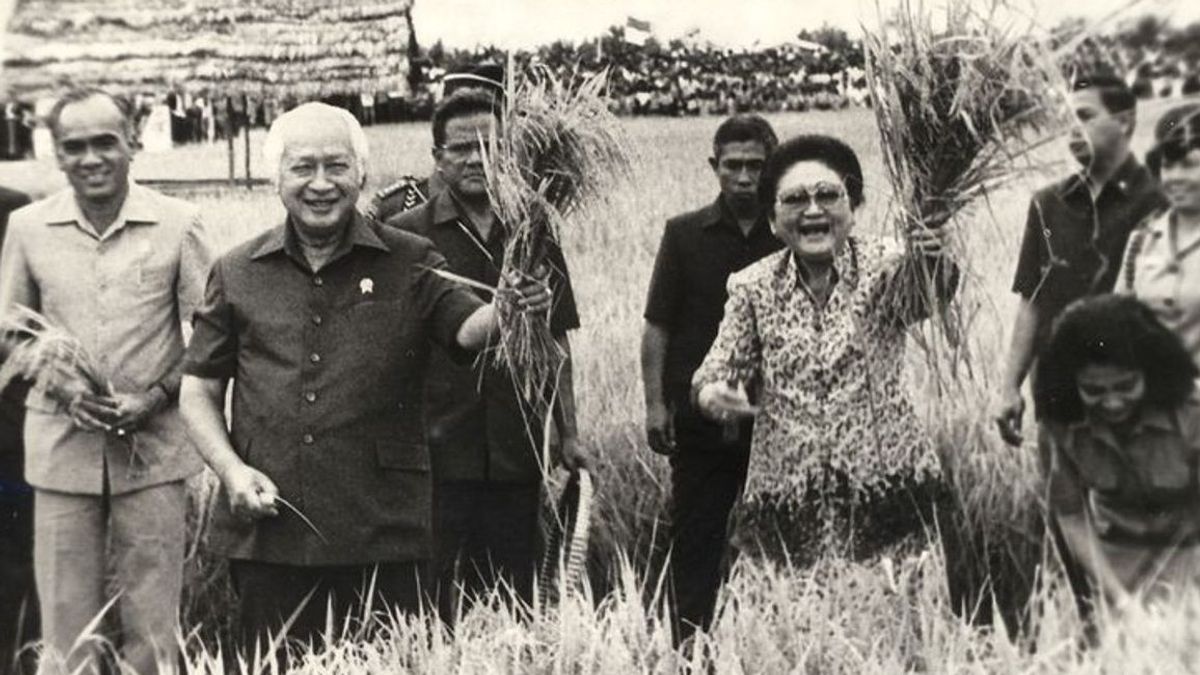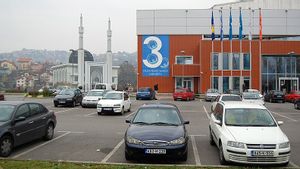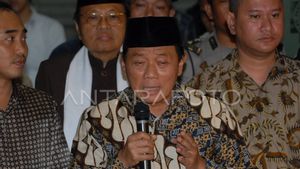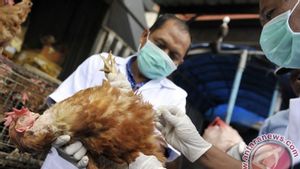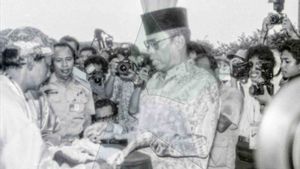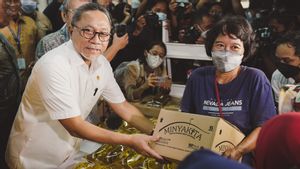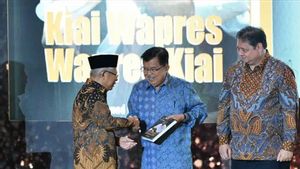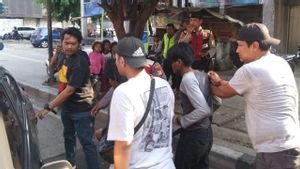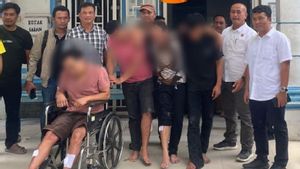JAKARTA History today, 54 years ago, September 24, 1969, the New Order (Orba) government officially introduced a new program on Radio Republik Indonesia (RRI). The rural broadcast, his name. The broadcast was used as a means of disseminating quality information for villagers.
Previously, the New Order government had a strong commitment to raise the lives of villagers in Indonesia. This view is perpetuated because the village has a lot of potential. Mainly, for the food needs of the archipelago.
There is quite a lot of village potential if managed properly. The New Order government agrees with it. Many kinds of urban needs are supported by many from villages. Agricultural affairs, for example. This potential is able to prevent Indonesia from various kinds of disasters, such as malnutrition and hunger.
New Orders often intervene to help the lives of farmers. Various policies and supporting facilities have been prepared. These include the construction of reservoirs, irrigation, fertilizer factories, and the development of human resources.
The recitation was given so that the lives of farmers were prosperous and did not fall into a puddle of poverty. The reality itself was witnessed by the leader of the New Order, Suharto. He once witnessed how difficult it was for farmers in his village, Kemusuk who were miserable because of crop failure. He also grew more sympathy for the farmers.
Suharto also learned a lot from life in villages related to the development of the agricultural sector. This experience teaches more sensitiveness to farmers when they become leaders. As a result, the New Order under its power chose to be interested in developing all kinds of villages. From the agricultural sector to tourism.
Dalam pada itu terasa latar kehidupan saya di Kemusuk tumbuh menyubur selama saya bertinggal di Wuryantoro. Pengalaman di Kemusuk di tengah-tengah paratani, di tahun-tahun 1920-an yang sedang sulit itu, menanamkan dalam diri saya berinh-behi kremati kepada petani. Benih-beh ini dipupuk bukan saja oleh hubungan saya yang berlanjut dengan kehidupan petani, tetapi juga dihitami pengetahuan dan pengalaman yang saya dalam bidang farm.
"Under the guidance of Mr. Mantri Tani Prawirowihardjo, I often accompany my uncle in his visits to various places. And Pak Prawirowihardjo not only gave me theoretical knowledge in agriculture, but also through practice. In the three pilot gardens that I remember, which Mr. Prawirowihardjo occupied, namely those in Ngungking, Kenongo, and Tangkil villages, I was given the opportunity to cultivate land that became my love," said Suharto as written by G. Dwipayana and Ramadhan KH in the book Suharto: My Thoughts, Words, and Actions (1989).
The New Order's desire to develop rural potential is getting serious. The Ministry of Agriculture and the Ministry of Information issued a Joint Decree (SKB) for that. The two ministries held Rural Broadcasts (Sipedes) in most of the RRI branches on September 24, 1969.
The New Order wants radio to be the right medium to spread knowledge and skills for villagers. Information shared includes small industries, operations, health, family planning, religion, the environment, and tourism.
اقرأ أيضا:
It is certain that the rural broadcast material is not limited narrowly to the agricultural sector but covers all fields of socio-economic development and the development of its mental and spiritual fields. Therefore, other agency officers should have taken part in developing and improving the quality of this rural broadcast.
"This means that cross-sectoral agencies must integratedly utilize this rural broadcast as a round social communication, and therefore actively determine its wisdom, implementation and provision of guidance, as outlined by the SKB by the establishment of the Rural Broadcast Board (DPSP)," wrote Fakhruddin Ilyas in a Gema Magazine report entitled Broadcast on Rural and Daya Jangkau Information and Religious Messages (1982).
The English, Chinese, Japanese, Arabic, and French versions are automatically generated by the AI. So there may still be inaccuracies in translating, please always see Indonesian as our main language. (system supported by DigitalSiber.id)
